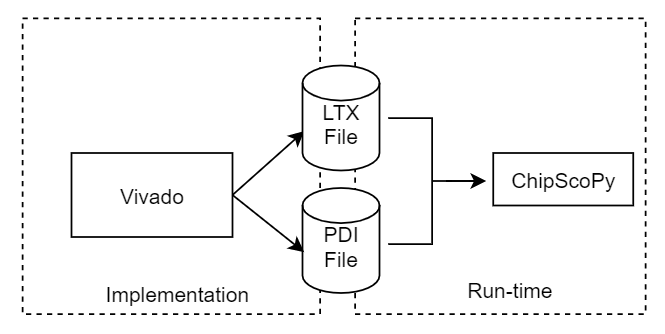System Requirements¶
Host System Hardware¶
- Hardware Debug Connection
Note
At this time it is not recommended to run cs_server natively on the SmartLynq+ module!
Host System Software¶
Operating System: please refer to Vivado Design Suite User Guide
2023.1 or newer Xilinx Hardware Server
hw_server2023.1 or newer Xilinx ChipScope Server
cs_serverPython 3.8 or newer
ChipScoPy Python Package
ChipScoPy Examples
Note
Please see ChipScoPy Installation for a complete guide to installation.
Network Considerations¶
While hw_server, cs_server, and ChipScoPy can be connected over TCP/IP networks for enhanced flexibility, it is not
recommended that they span large WANs. This can introduce performance issues. Specifically using them over VPN may have
undesirable results.
For best results all servers should be on a local physical LAN, contact your network administrator if you have questions.
Supported Versal-Based Boards¶
The example designs distributed with ChipScoPy are supported for these hardware boards:
Note
Not all examples will be supported on all hardware platforms–due to differences in the silicon.
- VCK190 (Versal AI Core Series Evaluation Board):
Versal VC1902 Device
- VMK180 (Versal Prime Series Evaluation Board):
Versal VM1802 Device
- VPK120 (Versal Premium Series Evaluation Board):
Versal VP1202 Device
User Designs¶
ChipScoPy supports user-generated designs targeting any Versal series device. To interact with a user design, first supply the PDI and LTX files to the programming and discovery routines.
The standard design flow will produce these output products for user-generated projects.

Vivado Design Flow¶
Note
Certain examples may also require the “hardware hand-off” file or <project_name>.hwh from the user-generated
project.